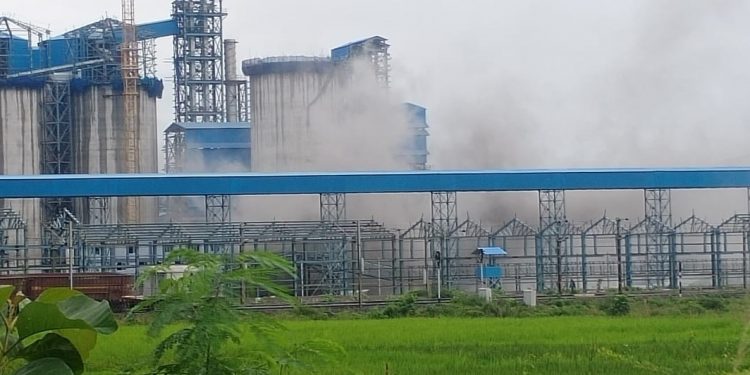Jajpur: As many as seven towns in Odisha figure in the State Pollution Control Board (SPCB)’s list of most polluted places that do not meet the National Ambient Air Quality Standards, a report said.
The report was made after monitoring the pollution level of 17 different towns in the state. As per the report, Odisha has seven non-attainment cities (NACs) that include Cuttack, Bhubaneswar, Angul, Talcher, Balasore, Rourkela and Kalinganagar in Jajpur road.
However, it has no mention about Haridaspur, the home to Ramco Cement plant, under Dharmasala block of Jajpur district. Absence of Haridaspur in the list has not gone down well with the locals who alleged a bigger conspiracy.
“SPCB authorities are not trying to hide the facts but are playing with the lives of hundreds of people by not revealing the truth in the report,” many locals rued and suspected a foul play in the SPCB report. The cement dusts and other pollutants emanating from Ramco plant have gone beyond control, they said.
Apart from pollution, Ramco has been lifting around 100 kilolitre of groundwater through bore wells on a daily basis especially when people in the peripheral villages are struggling to get safe drinking water in this scorching summer.
Locals alleged that Ramco Cement is not caring a fig for environmental safety and even for the court notice. Toxic fumes and dusts from the plant are polluting the environment.
The residents of Haridaspur had moved the SDJM Court March 24 seeking redressal of the pollution woes. Sub-divisional magistrate and sub-collector Sarat Chandra Mohapatra had investigated the matter and admitted that peace is being disturbed by operation of the plant.
The residents have complained that toxic substances and other pollutants present in the air have been affecting their skin and eyes. Also, the nearby water bodies have become unusable and affected their agricultural activities.
Moreover, presence of around 200 stone crushers in Dharmasala tehsil has added to the pollution woes. Irate locals warned of massive demonstration if the SPCB fails to come out with a fact-based report and stand for the cause of the locals.






































